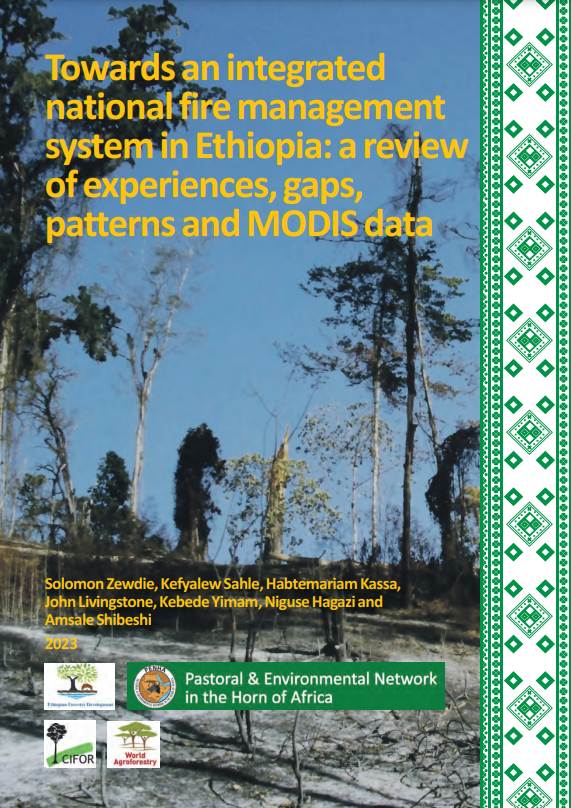Towards an integrated national fire management system in Ethiopia: a review of experiences, gaps, patterns and MODIS data

Wildfires have been recognized as global environmental processes and ecosystems differ in their sensitivity and response to natural fires depending on their fire history and vegetation characteristics. Most wildfires particularly in the tropics are human induced. In the tropics, traditional use of fire for agriculture and rangeland management has shaped rural landscapes for long. In Ethiopia, it is widely believed that seasonal wildfires have become more frequent, widespread and impact forest resources and livelihoods. The absence of a national fire management system is seriously undermining the nation’s green growth policies, strategies, and ongoing initiatives (e.g., Reducing Emission from Deforestation and forest Degradation (REDD+), Afforestation and reforestation (A/R) and the Green Legacy Initiative (GLI)). If not addressed, this may even reverse the gains so far made.